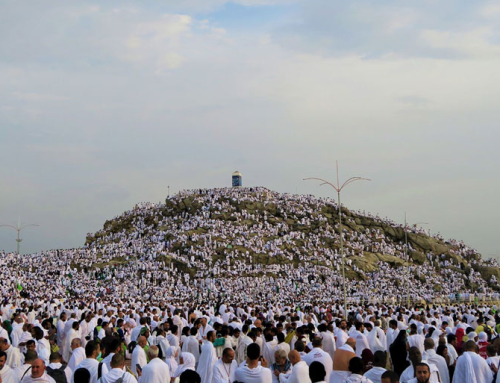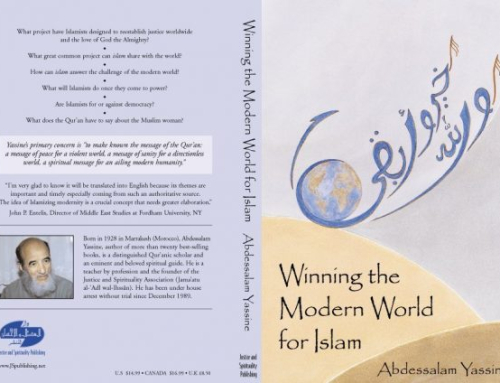Abdelhak Bzioui
August 21, 2023
Lifelong repentance
The justice and spirituality movement was founded by Imam Abdessalam Yassine in the early 70s of the twentieth century. The main rationale of the movement could be summed up in the maxim which the leaders as well as members keep citing “we repent to God and call on people to repent along with us”. It follows that incessant repentance from a sinful past, from paying less heed to God, from willfully or unintentionally erring or hurting others and so on seems to be axiomatic to the rhetoric as well as actual practice in Imam Yassine’s school of reviving the ‘Prophetic Method’. In the following quote, Imam Yassine lays down his approach to repentance:
“God knows that our aim and best wish is to see ourselves repenting among those who repent and delighted if anyone atones following us. In the hereafter, we hope to find, God willing, the reward of our repentance and the echo of our call for others to follow suit. That is our aim. Oh Lord, forgive us and have mercy upon us. Oh Lord, write down our names among those who atone”[i] (p. 25)
It is interesting to note how repentance here gains a life-long vista. It is not a one shot act which believers or converts experience once and for all, but a process of continual personal healing on the one hand, and faith renewal on the other. This mindset is well grounded in the tradition of Prophet Muhammad. He, God bless him and grant him peace, said: “Oh people! Repent to God and seek His forgiveness. Indeed, I repent to Him a hundred times a day”. This Hadith was narrated on the authority of Imam Muslim. Atonement in Arabic is Thawba, which literally means going back. Any time the believer strays away from their Lord either by inappropriate behavior or only by evil fancies, they need to turn back to Him and request His forgiveness.
Aims of ongoing repentance
The philosophy of Imam Yassine’s school is educational per se. By exhorting every individual to be themselves the locus of lifelong repentance, he highlights a prophetic approach to setting up a continuously refreshed servant-God rapport. One of the benefits of this approach is laying the foundations of a profound spiritual life which goes beyond the outward appearance of commitment to the teachings of Islam. The more an individual is self-nudged to redress their relation with God and with His fellow creatures, the more a built-in monitor is enhanced as an automated hedge against all distractions away from God and from the right path the Muslim must take. Keeping the believers closely in touch with their Lord to execute His commands and appreciate His blessings is both the objective and the aim.
As a second most important advantage, a repentance-centered life spans the individual’s relationship with fellow human beings. Through ongoing repentance, an individual would be very less likely to pen themselves in the coils of judging other people’s inner or outer behavior. The individual is the source of repentance, while God, Most Forgiving and most Compassionate, is the destination of such an act. It is up to Him to accept or turn down the servant’s repentance. Conscious of this reality, and uncertain that their own atonement has been accepted by their Lord, no rational servant would bluntly value judge others or claim moral superiority over them. In this vein, Imam Yassine stringently criticizes what many people do these days:
“a young man makes a half atonement and receives a half education, then finds out some day that he can give eloquent well-rhymed speeches. Then he would look down on others, setting himself as the source of undisputed jurisprudential expertise, even surpassing what the well versed Muslim scholars have laid down. Blinkered by the illusion of manhood and potency, he would despise any different attitude, heedlessly sewing clichés of vicious innovation in religion or even disbelief, and highlighting the traces of pre-Islamism in every detail of people’s life”[ii] (p. 58).
The wide open doors for repentance, however, do by no means mean that the person has a carte blanche to perpetrate whatever wrong deeds and then atone for them to be fully forgiven. The outcome of one’s atonement is never ensured. God urged believers to repent but has kept his response secret. Imam Yassine, in his educational approach follows suit. He emphasized repentance as an integral part within the day and night schedule of the believer. Still, he stresses in a book dedicated to believing women that “the believing woman must definitely give up all major blunders but she needs to atone for miner sinning under lack of attention, weakness of resolve, or capricious takeover. She needs to seek God’s forgiveness, reconcile with Him. Seeking His forgiveness entails remembering Him and acknowledging being fully His servant. The Messenger of God, God bless him and grant him peace, though being fully pardoned, would seek God’s forgiveness seventy times a day”[iii] (p. 326)
Imam Yassine outlines the basic tenets of the Islamic project he lays the foundation for as “repentance, faith, tarbiyya, ihsan, death, and hereafter, before the servant is assigned ranks of reward and proximity to God”[iv] (p. 247). He dismisses any so-called Islamic project devoid of those tenets as mere ‘commonplace political party’ project. By foregrounding repenting, believing and earning the hereafter, Imam Yassine prioritizes becoming over doing to clearly demarcate the framework of his movement as reaching beyond electoral campaigning or seat race. He seems to be laying down a transformational mindset of becoming, giving precedence to reforming the individual’s relationship with their Lord for safeguarding a better here and basically a promising hereafter.
[i] Dialogue of the past and future: http://siraj.net/حوار-الماضي-والمستقبل-8.htm
[ii] Justice, Islamists and government: http://siraj.net/العدل-:-الإسلاميون-والحكم-1.html#page/58
[iii] Muslim woman, Journey into the light, Volume 1: http://siraj.net/The-Muslim-Woman;-Journey-into-the-Light—Volume1-1054.html#page/326
[iv] Muslim woman, Journey into the light, Volume 2: http://siraj.net/تنوير-المومنات-ج-2-666.html#page/247















